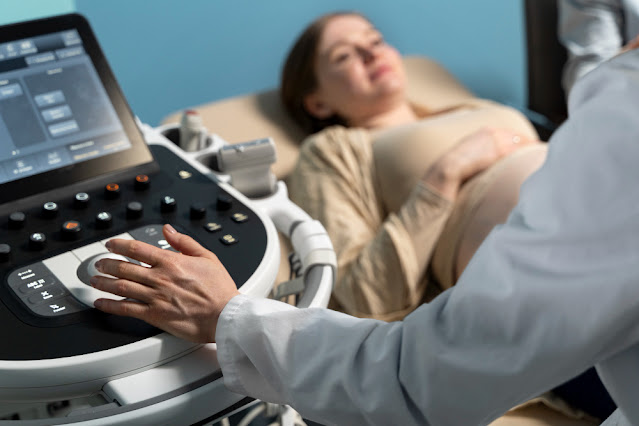The Crucial Role of Rapid Test Kits in Rural India: Preventing Diseases One Swab at a Time
Rural India, with its large and varied geography, presents particular healthcare issues. The absence of healthcare infrastructure and restricted access to medical services makes controlling and preventing diseases in these regions particularly challenging.
Rural communities face serious health risks from illnesses like typhoid and dengue, which are frequently brought on by dirty water and mosquito-borne viruses, respectively. However, there is hope in the form of rapid test kits. They are truly considered essential tools in the fight against diseases, especially in rural areas. The dengue NS1 kit price is made affordable for all so that even the underprivileged can afford it.
Understanding Typhoid and Dengue
Comprehending these diseases and their effects on rural communities is essential before discussing the function of rapid test kits like Rapid Typhi IGM.
Typhoid
The organism that causes typhoid fever is Salmonella Typhi. Through tainted food and water, it spreads. High fever, stomach ache, and digestive issues are all symptoms. Typhoid might become fatal if not detected with a rapid typhi IGM and treated right away.
Dengue
An infectious virus called dengue fever is spread by Aedes mosquitoes. Joint pain and mild fever are possible symptoms of severe dengue. It can become fatal if untreated. Every year, dengue outbreaks afflict hundreds of people in rural areas.
The Burden of Diseases in Rural India
A substantial chunk of India's population lives in rural areas. Even yet, it frequently falls short of urban areas in terms of outcomes and access to healthcare. The burden of diseases is substantial in these regions, with common threats including several infectious diseases.
There are several challenges faced by people residing in rural regions that keep them away from awareness and provide them with limited access to proper healthcare facilities.
1. Geographical barrier - Many villages are located far from urban centers. This distance, coupled with inadequate transportation infrastructure, makes it difficult for rural residents to access timely healthcare services.
2. Lack of awareness - Rural populations may not be adequately informed about typhoid and dengue prevention measures, increasing their vulnerability to these diseases.
3. Resource constraints - Rural healthcare facilities often have limited resources, including diagnostic equipment, which hinders early detection and treatment.
The Role of Rapid Test Kits
Rapid test kits are diagnostic tools that play a pivotal role in addressing these healthcare challenges in rural India. The dengue NS1 kit price, as well as other kits, is in a range that can be accessed by all. These kits are designed to provide quick and accurate results, often within minutes, making them invaluable in resource-constrained settings.
Here's why they are necessary:
1. Early detection: Rapid test kits enable the early detection of diseases. In rural areas where healthcare infrastructure is sparse, early diagnosis can mean the difference between life and death, especially for diseases like HIV/AIDS, which benefit greatly from early intervention.
2. Reducing transmission: Infectious diseases, such as COVID-19, can spread rapidly in close-knit rural communities. Rapid test kits can help identify and isolate infected individuals, reducing the risk of community-wide outbreaks.
3. Access to remote areas: Rapid test kits are portable and do not require sophisticated laboratory facilities, making them suitable for use in remote areas. Healthcare workers can carry these kits to villages and conduct tests on-site.
4. Cost-effective: Traditional laboratory tests can be expensive and time-consuming. Rapid test kits are cost-effective, making healthcare more accessible to those with limited financial resources.
Preventing Typhoid with Rapid Test Kits
Here's how rural areas can prevent typhoid using rapid test kits:
1. Screening and early diagnosis
Healthcare workers can conduct regular screenings in rural communities using rapid test kits to identify typhoid cases promptly.
2. Treatment
Rapid diagnosis with a rapid typhi IGM allows for immediate treatment with antibiotics, reducing the severity of the illness and preventing its spread.
3. Public health education
Simultaneously, healthcare workers can educate the community on safe water and food handling practices to prevent future outbreaks.
Preventing Dengue with Rapid Test Kits
Now, let's explore how rapid test kits can aid in preventing dengue in rural areas:
1. Mosquito Surveillance
Rapid test kits can be used to screen mosquitoes for the dengue virus. This information can help authorities target mosquito control efforts effectively.
2. Early Detection of Cases
When a dengue case is confirmed using a rapid test kit, public health officials can respond swiftly by implementing mosquito control measures in the affected area.
3. Community Engagement
Educating rural communities about mosquito breeding sites and protective measures, such as bed nets and insect repellent, is crucial in dengue prevention.
Challenges and Considerations for Using Rapid Test Kits
While rapid test kits offer promise in rural disease prevention, there are challenges to address. Rural communities may not be aware of the availability and importance of rapid test kits.
Awareness campaigns and education are essential to promote their use. Also, healthcare workers need proper training to administer and interpret rapid tests accurately. Effective monitoring and reporting systems must be established to track disease trends and respond quickly to outbreaks.
Final thought
Rapid test kits have the potential to revolutionize disease prevention in rural areas, particularly for typhoid and dengue. The dengue NS1 kit price is kept at a certain range that is affordable for all. These kits bridge the gap in healthcare access, enable early disease detection, and help control disease transmission.
Coordinated efforts are needed to raise awareness. To unlock the full potential, rapid kits must be continuously accessible in India's most remote areas. This could have a significant positive impact on the health and quality of life of millions of individuals in these underserved communities.




Comments
Post a Comment